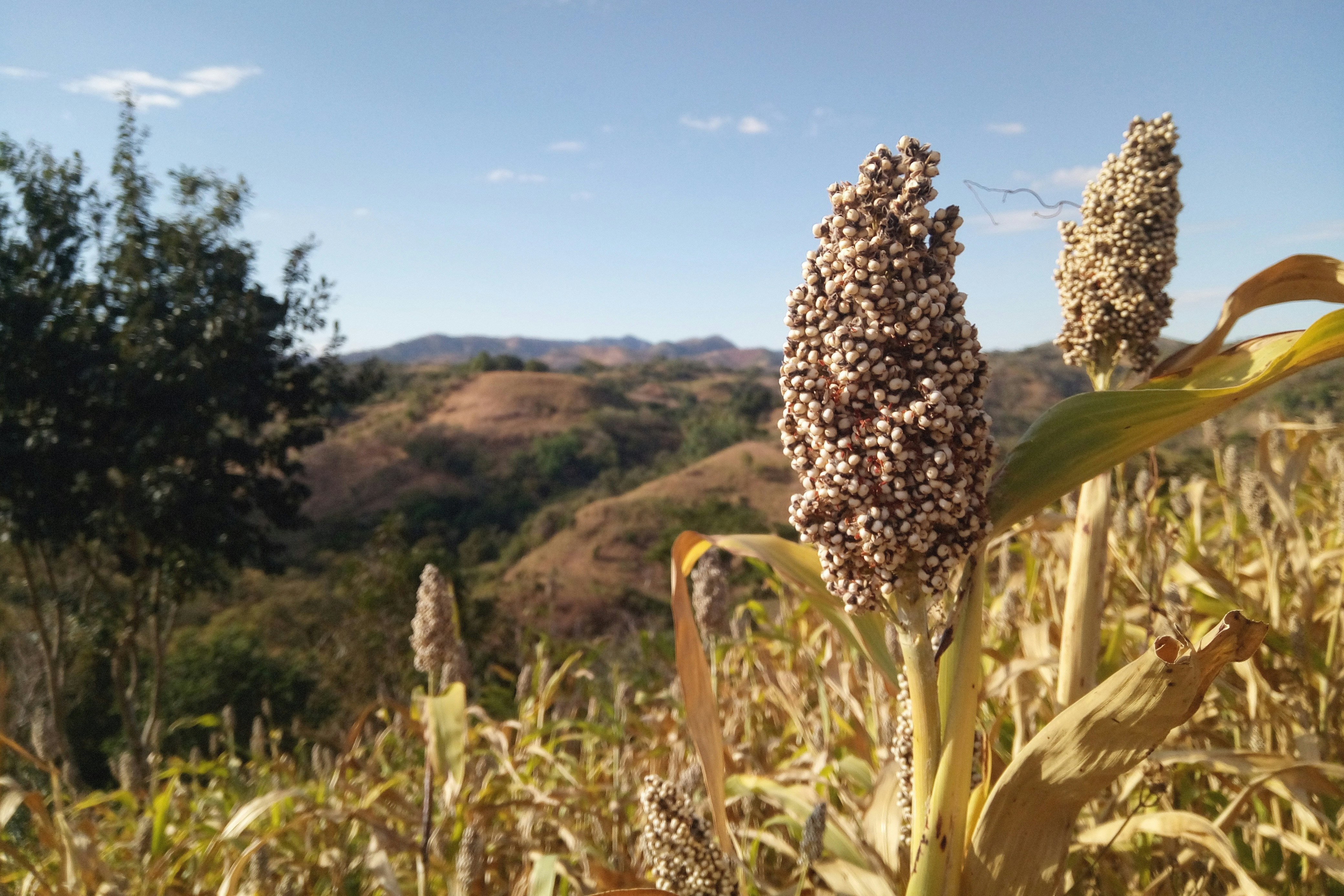Sorghum is a grain crop that is widely cultivated and consumed in many parts of the world especially in the tropical regions. In Southern Africa, Sorghum is widely grown in valleys and hilly areas as it is proven to be a drought resistant crop. Like maize, sorghum can be pounded into powder, cooked and consumed with an accompaniment such as relish. However, some people do not like sorghum for various reasons. In this article I outline some of the possible explanations:
1. Taste Texture
Sorghum has a distinct taste and texture that may not appeal to everyone. Some people find it too dry or crunchy, while others may dislike its slightly sweet or nutty flavour.

Sorghum grains, a traditional staple with great potential for Zambia's food security.
2. Limited Culinary Uses
Sorghum is not as versatile as other grains such as rice or wheat. It is often used in traditional dishes or as a substitute for others grains but it may not be suitable for all types of cuisine. This limitation discourages people from paying attention to it.
"With concerns around climate change becoming louder, drought resilient crops such as sorghum need to be given more attention to improve food security in the absence of maize." — Dina N.
3. Lack of Familiarity
Sorghum is not as widely consumed in some parts of the world, particularly in Western countries. As a result, people may not be familiar with its unique taste, texture, or culinary uses.
4. Nutritional Comparison
Some people may prefer other grain crops like quinoa or brown rice due to their higher nutritional value. Sorghum is a good source of fibre and protein, but it does not offer the same level of nutritional benefit as other grains.
Reconsidering Sorghum
Not liking Sorghum is a matter of personal preference. Whether it's due to taste texture, limited culinary use, lack of familiarity, or nutritional comparison, there are many reasons why someone may not enjoy Sorghum. All in all, it is a tropical grain that is drought resilient and is a good substitute grain during times of drought.
With concerns around climate change becoming louder, drought resilient crops such as sorghum need to be given more attention to improve food security in the absence of maize.
